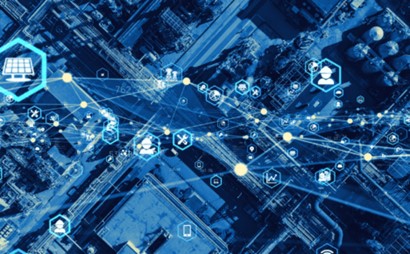
It is challenging to overstate the value of effective cybersecurity measures in a society that is becoming more and more digital. Supply chain security is a crucial part of cybersecurity that is becoming more prominent: this article addresses the relevance of supply chain cybersecurity, evaluates prevalent viewpoints and identifies the difficulties observed in this area.
Particularly relevant to companies doing business in Europe, an initiative of the European Union called the Network and Information Systems Directive 2 (NIS2) aims to raise cybersecurity standards generally among all of the EU’s member states. The NIS2 Directive, which builds on the principles set out by its predecessor, gives even more importance to vital industries including energy, healthcare, financial services and transportation. This is acting as a driver of supply chain cybersecurity, obliging companies to address the following issues:
End-to-End Resilience – Manufacturers and logistics service providers are only a few of the many interrelated entities that make up the supply chain ecosystem. A single vulnerability in any one of these links might have significant repercussions. The risk of operational disruptions due to cyber attacks is reduced by ensuring cybersecurity throughout the whole supply chain.
Sensitive Data Handling – Sensitive information is often exchanged in modern supply networks. This covers confidential information such as client data, financial data and project specifications. This crucial data may be exposed as a result of a supply chain breach, which might have a negative financial impact as well as reputational harm and legal ramifications.
Regulatory Compliance – Organisations in key industries are required under the NIS2 Directive to have strong cybersecurity measures in place, including those that apply to their supply chain partners. In addition to being required by law, compliance with these requirements demonstrates a commitment to protecting vital infrastructure and services.
Challenges in Supply Chain Cybersecurity
Complexity and Scale – Modern supply chains are complex, frequently spanning many regions, and involving many different parties. A huge task lies in ensuring cybersecurity throughout this broad and diversified ecosystem. Comprehensive monitoring and risk management are challenging tasks due to the vast number of players, each having its own cybersecurity rules and procedures.
Risks Associated with Third Parties – In supply chain operations, relying on outside suppliers and service providers is common. However, it takes considerable effort and financial commitment to assess each of these businesses’ cybersecurity measures and capabilities, and conduct due diligence. Additionally, some organisations could lack the knowledge or resources necessary to accurately evaluate the cybersecurity practices of their suppliers. This may result in vulnerabilities caused by weak supply chain links.
Evolving and Emerging Threats – Rapid evolution characterises cyberthreats and it requires constant monitoring and adaptable security measures to stay ahead of evolving threats and weaknesses. Organisations must be swift to adapt to the dynamic nature of cyber attacks by regularly upgrading their cybersecurity defences to handle new and changing threats.
Maintaining strong supply chain cybersecurity strategies will be essential to the long-term performance and sustainability of businesses as the digital landscape continues to develop. With its focus on supply chain security requirements, the NIS2 Directive points to a new age of cybersecurity resilience. However, there are challenges to putting these standards into practice. Businesses must exercise extreme caution in their compliance efforts. The NIS2 Directive’s regulation of supply chain security serves is an example of how the complexities of cyber security compliance may go well beyond the securing of one’s own company.
